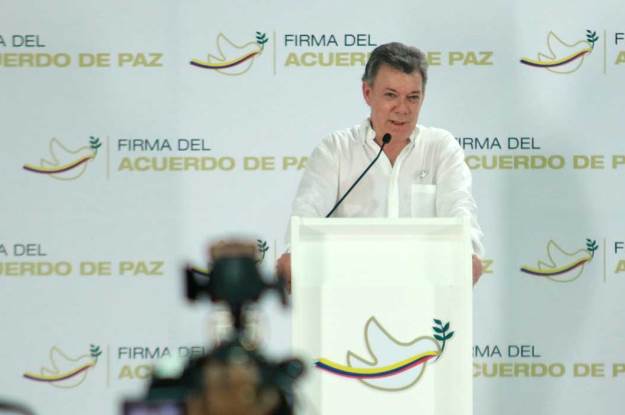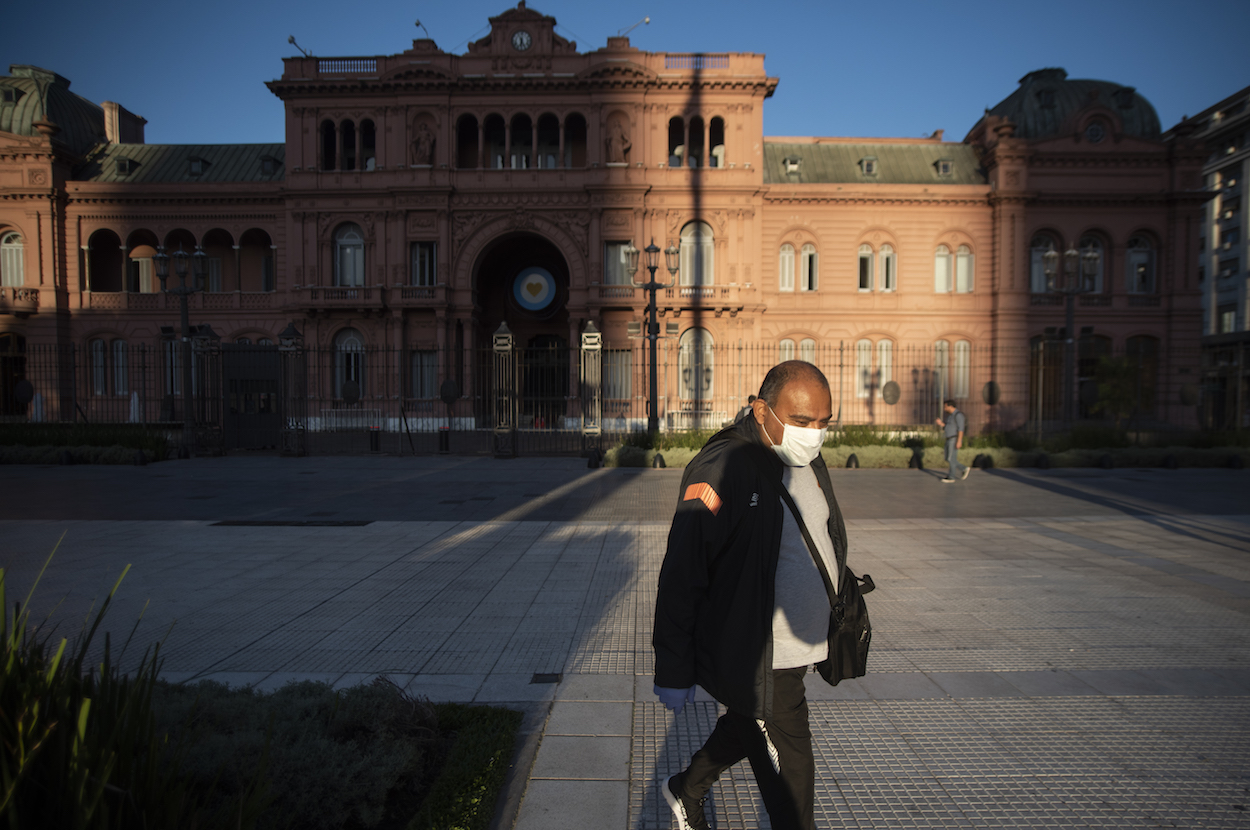Sign up here to get This Week in Latin America delivered to your inbox every Monday.
Peace Deal: Colombia’s President Juan Manuel Santos will sign an agreement today to end his country’s 52-year war with the FARC. Santos’ tumultuous four-year peace process has come at significant financial and political cost, and touched off fierce debate about how the guerrillas will be held to account after they disarm. Polls suggest that Colombians are likely to approve the deal when it is put to a plebiscite vote on October 2 – an outcome largely supported by the international community. Implementing the accord will require at least $16 billion over the next ten years, according to conservative estimates; a large portion of that sum is expected from foreign governments and international institutions. The signing ceremony in Cartagena will be broadcast live online at 6 p.m. ET.
Ayotzinapa: Street protests are expected in Mexico City today, two years after state security forces were involved in the disappearance and presumed murder of 43 college students in the southern state of Guerrero. The government has detained at least 130 people in connection with the case, but has yet to provide definitive answers as to the fate of the missing young people. President Enrique Peña Nieto’s administration has come under harsh criticism for its handling of the investigation. Earlier this month, Tomás Zerón, the government’s lead investigator, resigned amid an internal probe of alleged misconduct in his examination of the case. Zerón accepted a high-level post on Peña’s national security council one day after stepping down.
Brazil Elections: Former President Dilma Rousseff’s Workers’ Party (PT) is expected to suffer a political setback when Brazilians vote in the first round of municipal elections on October 2. The contests include mayors’ races in Rio de Janeiro and São Paulo, where the current mayor Fernando Haddad is polling in fourth place and looks unlikely to make the second round on October 30. It would be the first time since 1992 that a PT candidate failed to appear on the second-round ballot for the city’s top post. The impeachment process against Rousseff has derailed the PT’s political partnership with the PMDB, the party of current President Michel Temer. The PMDB is facing its own difficulties, after the Supreme Court said last week it would allow a probe into corruption allegations that could implicate high-ranking party members.
Nicaragua Sanctions: The U.S. Senate’s foreign relations committee may now consider the Nicaragua Investment Conditionality Act after the House passed a version of the bill without objection last week. The legislation, which would force the U.S. to oppose some international lending to Nicaragua until the country takes steps to ensure free and fair elections, has drawn support from Freedom House and other democracy watchdog groups. Long-running concerns over the state of Nicaragua’s democracy grew more vocal last month after President Daniel Ortega named his wife as running mate in elections due on November 6. Ortega had already taken steps to debilitate the opposition by barring his most likely opponents from running against him.
Economy in Brief
President Mauricio Macri said the 2012 expropriation of Spanish oil firm Repsol’s fields in Argentina violated the constitution.
Ecuador’s President Rafael Correa said he hopes an informal meeting of OPEC this week in Algeria will lead to a stabilization of world oil prices.
U.S. Treasury Secretary Jack Lew will visit Argentina, Brazil, Colombia and Mexico on an official visit this week.








